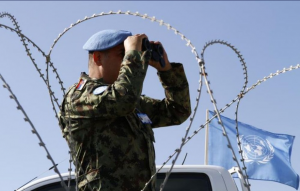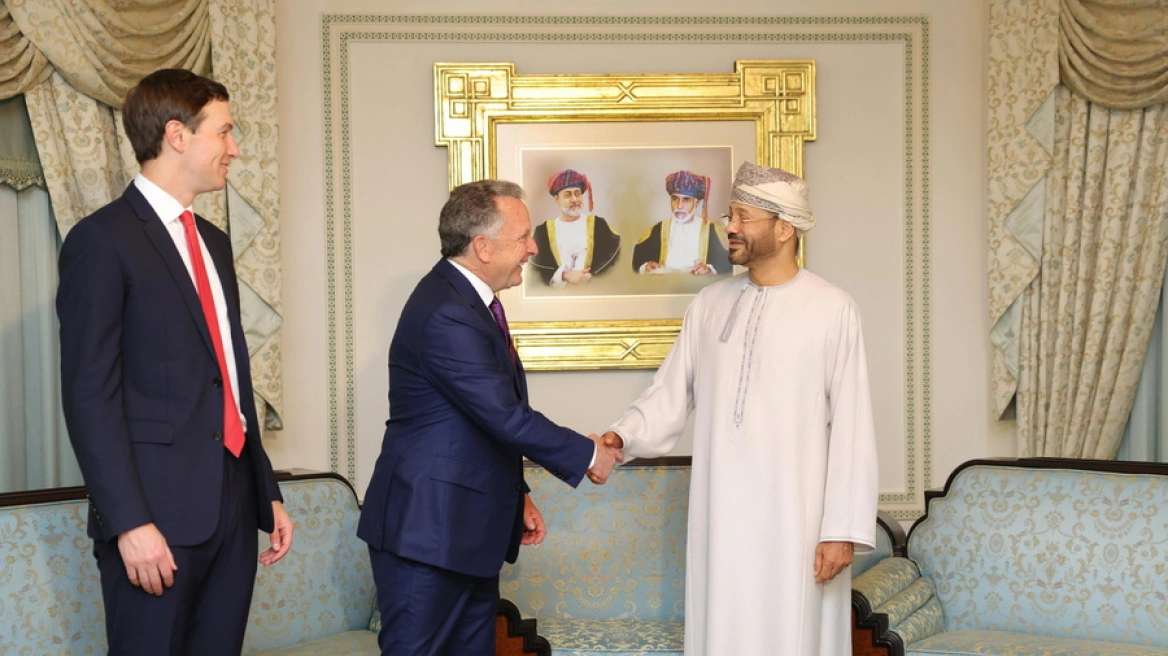The Australian government tried to give some explanations for its decision to withdraw its troops from UNFICYP after 53 years.
According to a communiqué by the UN in Cyprus, the Australian government says the reasons for the withdrawal of the forces are economic.
Emphasis is also placed on the Australian Government’s support in finding a solution to the Cyprus problem through the negotiations.
Here is the full text:
Why are Australian Police leaving Cyprus right now?
The Australian Government’s decision to not continue its policing contribution to UNFICYP beyond June 2017, after 53 years, was announced publicly in May 2015.
This was part of that year’s Federal Budget tabled in the Parliament in May 2015. In advance of this Australia consulted with the Republic of Cyprus, representatives of both communities, the three Security Guarantors, as well as the UN in New York and with a range of key UNSC members. All thanked Australia for its unique 53-year commitment to UNFICYP, only matched by the UK, and the dedication of the 1600 Australian police peacekeepers who have served in Cyprus over half a century since 1964 – 3 of whom were killed.
Australia’s 2015 decision was based on a range of considerations:
The clear and welcome level of increased interest and capacity of many EU and EU-candidate states in the wake of the EU’s 2004/&07 enlargements in shouldering regional peacekeeping tasks, in particular in a fellow-EU member state
This assessment has been borne out: UNFICYP has steadilyreceived new international police contributing contingents from these states. They have transitioned seamlessly and professionally into positions and roles previously done by Australian police. UNFICYP as a mission continues to be very well served by dedicated police drawn from these European countries as well as others elsewhere such as China and India. The Italian police (Carabinieri) contingent has also now returned to UNFICYP.
Many of these recent police contributing contingents draw from their own countries’ experience of transitions from divided communities and conflict to becoming stable and forward-leaning European democracies.
The impact of Australia’s steadily-increasing own regional peacekeeping, stabilisation and transition/rule-of-law policing commitments with our neighbours:
While Cyprus was Australia’s first policing contribution to a peacekeeping mission, over the subsequent half-century, and especially following the end of the Cold-War, Australian police have concurrently been called to serve in peacekeeping missions in Afghanistan , Bougainville (PNG) , Cambodia, Haiti, Mozambique, South Sudan, Timor Leste, and the Solomon Islands
At the same time, and more and more over the last 20 years, Australian police have been called to over a dozen (often concurrent) post-peacekeeping/stabilsation/ transitions, providing a range of rule-of-law and capacity-building development and assistance missions to Australia’s near neighbour countries in the South Pacific and South East Asia.
The requirements of these missions has been increasingly dynamic. The numbers and location of Australian peacekeepers, both police and military, is under continual review to ensure Australiacan meet increasingly diverse demands with regard to its and near neighbours’ security and stability architecture. The 15-year peacekeeping mission of Australian police to one of its northern neighbours, the Solomon Islands (a regional peacekeeping and stabilisation mission – RAMSI) for example, which also concludes formally at the end of June 2017, will continue to engage Australia policing assistance resources.
Australia remains a significant financial contributor (11th largest) to UN peacekeeping globally – our contribution is changing and becoming more strategic and which best utilises our unique value-adds.
At the September 2015 Leaders’ Summit on Peace Operations, Australia pledged its C130 and C17 strategic airlift support to the UN in crisis situations and additional resources for UN pre-deployment training for regional troop and police contributing countries. A Royal Australian Air Force C17 for example recently delivered several Fijian UNIFIL peacekeeping vehicles from the South Pacific to that ongoing UN mission in Lebanon .
Australia’s own domestic security environment has continued to become more complex as the result of terrorist threats in Australia, and new and increasing demands on Australian police at home have steadily appeared over the last few years.
The insidious and poisonous messages of so-called ‘ISIL’ continue to seek to divide and radicalise Australians of all faiths and backgrounds – goading them to kill themselves and others through acts of terrorism in Australia. Australian State and Federal police forces and security agencies continue to work harderand more effectively in anticipating and meeting the threat this poses within Australia.
The Australian Government has continued over several years to reassess on an ongoing basis the right balance between Australian police serving overseas and being available in Australia.
Does Australia still support the current Peace process?
Australia remains fully committed to the Cyprus peace process as we have done for 53 years – and remains faithful to the long-established UN and international-community settings supporting a comprehensive negotiated settlement.
Australia, through its High Commission in Nicosia, continues to support, and has stepped-up support in the last year, for bi-communal initiatives such as the Cyprus Academic Dialogue (CAD), and to encourage and engage greater involvement of Cypriot women from both communities within the peace-process, as well as longer term peace building, reconciliation and bi-communal cooperation. This is consistent with Australia’s very active ongoing support of the objectives of UNSCR 1325 drawing off its own long experience in assisting lasting resolutions to its own region’s conflicts. It also remains a key principle and pillar of Australia’s foreign policy and peacekeeping approaches.
The Australian Minister for Justice, Michael Keenan, also visited Cyprus in late April 2017, where he discussed the conclusion of the current Australian police mission to Cyprus. He reiterated to his Cypriot counterpart, UN and other key players that Australia – as a successful federation – would assist a re-united Cyprus to develop its federal police force.
Will the Australian Police’s withdrawal have any impact on Australia’s relationship or engagement with Cyprus ?
Australia and Cyprus enjoy exceptionally close and warm people-to-people links based on the many tens of thousands of Australians of Cypriot descent who live in all parts of both our unique islands. These links are vibrant, very much alive and will always remain as an unshakeable bedrock of the relationship. The Australian police’s contribution over 50 years to the restoration and maintenance of peace, and the prevention of a renewal of conflict in the island of Cyprus will not be forgotten, and will remain a permanent and positive legacy in the relationship.
The overall relationship also continues to develop, modernise and expand in new directions.
Australia recognises Cyprus’ key role as an island of democracy and stability in a turbulent region. As such, Australia’s 2017 participation in Cyprus’ annual regional crisis Exercise Argonaut was the largest yet – and Australia’s role to support the exercise may expand in 2018.
Australian and Cypriot police forces and agencies have also recently agreed at Ministerial level to enhance significantly their practical cooperation on a range of issues , including organised crime and counter-terrorism.
The business relationship and linkages between Cyprus and Australia, which were affected by the financial crisis, are also now growing in several new directions, including across solar and renewable energy technologies and projects, water treatment, and in arid-land and agriculture research synergies – where farmers and food industries in both Cyprus and Australia who are focussed on expanding Asian markets will reap the benefits. Likewise, there are expanding higher-education education and research links, including on across issues such as road-safety initiatives.
Australia and Cyprus will also hopefully soon announce new linkages across aviation and tourism arrangements which will see many more Cypriots and Australians visiting each other’s countries and families, and also using the other as a platform for further travels and business activities in each’s region.
Ask me anything
Explore related questions





